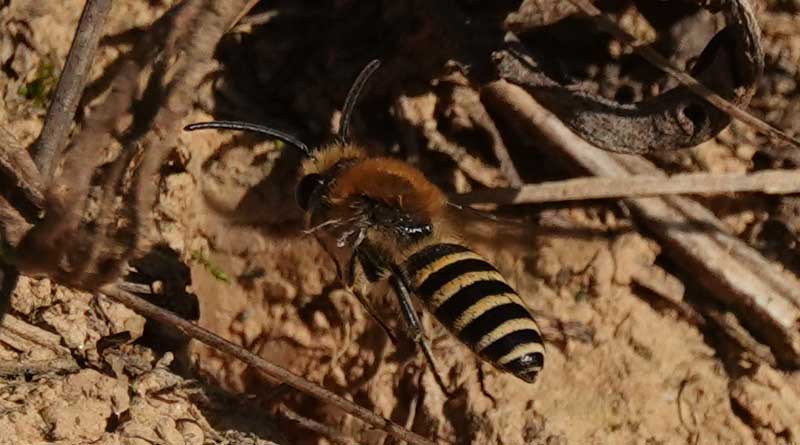News

Ivy Bees beneath Galley Hill
19 September 2018
If you walk along the path below the cliffs at Galley Hill at the moment, you can hardly fail to see Ivy Bees, as there are thousands flying around close to the ground. They are mining bees that lay their eggs underground and most of those you see are males patrolling the entrances to burrows waiting for females to emerge or return. They will then pounce on her and you can sometimes see a ball of bees on the ground – there will be a female in the middle!
Ivy Bees (Colletes hederae) have only been seen in this country since 2001, but they are now common all along the south coast and in the southern half of Britain as they spread further north. They are an important pollinator, particularly as their numbers are increasing, unlike many other bees, and they go for the nectar of Ivy flowers, which are abundant at this time of year and provide fruit for over-wintering birds. The bees emerge in September, mate and lay their eggs, and will all have died by the end of November.
The majority of Ivy Bees are male and they cannot sting. Although the females can sting they are not aggresive and will only sting if handled roughly so are perfectly safe around dogs and children.
They nest in loose earth or soft cliffs especially if south facing, so the cliffs at Galley Hill are ideal and there are burrows all the way along these cliffs. The bees have been spotted elsewhere in the Countryside Park and you may even find them burrowing into your lawn.

